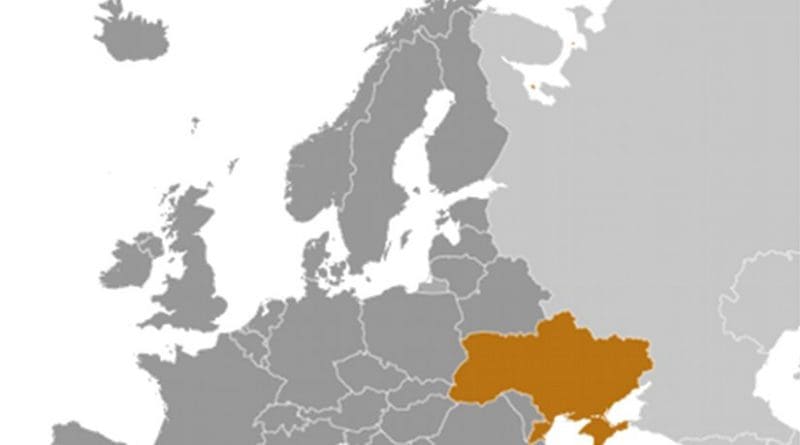How Lithuania Can Help Ukraine – OpEd
Is Lithuania sending weapons to Ukraine or not? Marius Janukonis, Ambassador to Ukraine, caused a political earthquake in June after acknowledging that Lithuania is ready to become the first country to officially arm Kiev with deadly weapons. Prime Minister Algirdas Butkevicius, on the other hand, blasted Janukonis, labelling his statements as having been “out of line”, and saying that even if the political will exists, the State Defence Council will have the final word on the topic. However, despite this smoke and mirrors game, it’s only a matter of time before hawkish President Dalia Grybauskaitė will triumphantly inform the nation that Vilnius shall become the first EU member to actively ensure Ukraine’s territorial security and give it the means to counter Russia’s aggression. But is it really the wisest course of action?
Standing in stark contrast with Vilnius, the Ukrainian Institute of Strategies of Global Development and Adaptation in Brussels arranged and moderated an international teleconference with the modest aim of reaching a broader political compromise between Ukraine, Russia, and the European Union (EU). The conference was titled “Context and Prospects of Settlement of the Conflict in the East of Ukraine,” and was led by several academic experts in fields of political science, philosophy, and international relations from Kiev, Moscow and Brussels. The goal was to establish stronger ties between the civil societies and intellectual leaders of the EU, Russia and Ukraine. Unlike Grybauskaitė’s rhetoric, such a conference in a time of heavy hostility gives an opportunity to take a fresh look at the conflict, through a dispassionate viewpoint and break through the media fuelled frenzy.
Indeed, the current trend has been one of a continuous game of upping the ante, exacerbating fears on all sides, spreading beyond Russia and Ukraine to neighbouring EU countries. These countries, such as Lithuania and Poland, still harbour fresh memories of being swept under Soviet rule, memories too painful for their leaders not to take Russian aggression seriously. It is not surprising then that President Grybauskaitė has reinstated a divisive military draft on 11 May for young people. Naturally, her hawkish stance, propelled by an understanding that Moscow could engulf the southernmost Baltic country within hours, enjoys high support in Lithuania.
Lithuania’s sensitivity may not be so surprising given its history; nevertheless, its swiftness to return to a cold-war logic is rather distressing. Russia’s illegal annexation of Crimea has shattered the European dream of living in a post-modern, peace-prone society. In a flash, the continent returned to a reality ruled by the zero-sum game; one where a president has to re-enact a draft, write a survival manual instructing its public on what to do in case of a Russian attack, train troops and throw herself even deeper into the conflict by sending heavy weaponry to one of the participants.
This is taking place on a continent that has already went through hundreds of wars; one where the EU was created precisely to forego future aggression by leading the European community through effective soft power means. This kind of Union is what drew in Lithuania, Poland, and other central and eastern European members. This kind of Union is what attracted Ukraine to sign the DCFTA, and instigated the conundrum in which it currently finds itself with Russia. Surely, the Union’s peaceful practices cannot immediately go to waste because Moscow is playing a different kind of game, one more suited for the 20th century.
Rather than using the logic of power politics played by Grybauskaitė and her ilk, she should use that pugnacious energy and tremendous European political capital and use it to foster dialogue, a dialogue that generates peace and security, and would spearhead a solution for Ukraine.
Dialogue?
Let’s not kid ourselves, dialogue is by no means a fool’s tool. Dialogue was used to set the stage for the end of the Cold War in 1975 with the Helsinki Final Act, a time where tensions were considerably higher than now and when all European militaries were on a high alert. These accords also established the Organisation for Security and Cooperation in Europe (OSCE), which was the first of its kind in using a comprehensive strategy agreement that involved bilateral and multilateral relations. The agreement was a “victory of reason”, according to Brezhnev, one where all peoples, both socialist and capitalist, won. If in a time of such deep divisions a peace agreement could be established and sustained, surely another win-win circumstance can prevail for all sides now. Indeed, a recent report on OSCE’s involvement in Ukraine shows that an expansion of conflict prevention mechanisms and a better deployment of multi-track diplomacy are needed to bridge the gap that prevents a solution for the conflict.
Less publicized efforts and communication tools remove pre-conceived notions of hope, and levels the playing field allowing participants to just talk and listen – to have an open dialogue. Such efforts create new channels for conversation, when such channels have become quite limited. The Minsk Agreements were accompanied by high expectations and were billed as the way forward. They failed. The advantage in engaging in grassroots diplomacy is that experts and academics in the field are not necessarily as emotionally charged as politicians. Their distance to the situation gives them an advantage in being able to hypothetically reach a consensus at a safe level, before brokering a compromise later at the political level. This setting allows an open discussion among the major parties and moves past the antiquated zero-sum realism that has, once more, plagued the continent. Isn’t this what Europe was supposed to be about? Isn’t this why Eastern countries joined the Union in the first place?

